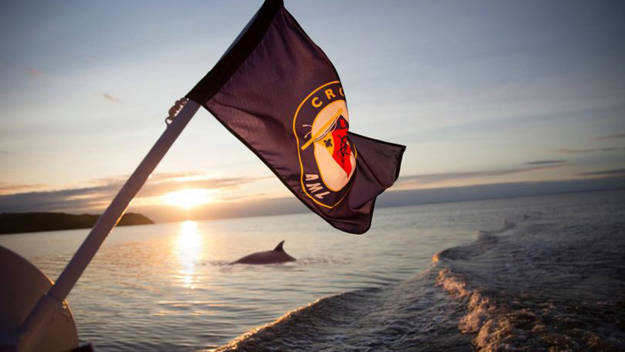Here is testimony of three actors working in the national and international cruising sector, telling us about what it means to protect the environment and what actions they are currently taking to do so.
Ponant (Nicolas Bilek, sales manager)
What kind of trips do you offer?
Some of our cruises are expeditions. The basic fare includes all excursions and lectures by scientists, glaciologists, ornithologists and marine wildlife specialists. They enhance the trip and bring additional information. We have Zodiac trips where you discover a world that is very different from the one we know. These are trips that take us to the ends of the earth. When the passengers leave the ship, they realize that this is important, that it is not a trip like any other and that we all have a part to play in it.
What are your environmental concerns?
The sea is where we work. We have to be careful with it. We have commitments. Even when constructing our ships, we think about protecting the environment and having the least possible impact. The fact that we take passengers to remote places that are not affected by our way of life, to let them immerse themselves in the local nature and the people who live there, finally allows us to better protect what we know. Otherwise, it seems far away. When you go there, you say to yourself, "My environment, even if far away from here, has a direct impact." There is a certain education and that is the purpose of these trips.
Hurtigruten (Eric Bacon, Director of Business Development)
What concrete actions are you taking for the environment?
Last year, we started installing in our ports in Norway some sort of "plugs" so that ships arriving in port can plug in instead of running their engines. We're going to have that in our 34 ports by 2021. Also, as of July 2th, 2018, we've banned single-use plastic on all our boats. In May 2019, we're getting our new hybrid boat. When we sail, we'll be storing electrical energy. In some places, we will be able to stop the engines and sail in silence thanks to this energy stored in batteries. At the beginning, it will be only for 20 or 30 minutes, but we will be able to increase this autonomy quickly. We will receive a second boat in 2020 and a third in 2021.
What are your environmental concerns?
The cleanliness of the water and the banks, but above all, nature and animals are essential. That's why we take people to these areas. We take them to see seals, whales, polar bears and birds which are the first victims of climate change.
What is the impact of climate change on your company?
There are trips that we could not do before that are now possible because of ice that finally melted.
Croisières AML (Laurence Tôth, Communications Advisor)
You are part of the Eco-Baleine Alliance. What does that mean?
We co-founded this in 2011. It's an organization that is committed to adopting ecoresponsible practices. It goes beyond simply adapting our equipment; we also raise awareness. We created, at the same time as the alliance, the Eco-Baleine Fund. This fund finances research and education activities as well as projects.
What concrete actions are you taking to protect the environment?
Usually, a Zodiac has 20 to 30 seats, but our new generation of Zodiacs now have a capacity of 60 seats. We have fewer boats boarding more passengers while also maintaining our excursions. Production of greenhouse gas is also reduced per passenger. We have reduced our river excursions by 50%. In 2007, we had 13,000 and in 2017, 6,600.
What are your concerns about the St. Lawrence River?
Our goal is to disturb the natural habitats as little as possible. We want to make the population aware of nature's preservation. This is also a concern of our naturalist guides when they are at sea. People will understand that belugas are a threatened species.



